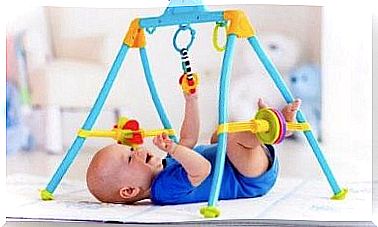How Does A Parent Gain Teen Trust?

Adolescence can be a challenging stage in life, often also testing the relationship between a young person and his or her parents. It is common for such a close relationship to crack before a child enters adolescence. That’s why we’re sharing a few tips today to help parents gain teen confidence.
The relationship between a parent and a teenager is by no means bad. Their relationship is affected not only by the young person’s internal processes, but also by the compatibility of his and her parents ’characters and all the common experiences over the years.
It is true that the past cannot be changed, but many experts believe that convergence with your own teenage child is possible. However, this requires many factors to be taken into account, and the key factor is the attitude of the parents.
Moment of truth
In childhood, a child is often a reflection of his or her parents. Sometimes parents do not realize that this relationship changes as the child grows.
When a child is big and independent, he or she begins to evaluate things from his or her own perspective. Parents are not excluded from this change, and adolescence is a complex stage in which parents and their authorities are put to the test.

Adolescence puts parents ’moral perceptions, fairness, patience, openness, and understanding to the test.
It is true that rebellion then plays a major role, and the child tries his parents to see if he gets everything he wants.
Governance or trust?
This is one of those things that can either separate parents from their teens or bring them closer. During a child’s emotional independence, trust is highly valued and the young person does not want to be treated as a child.
Often parents have to choose between trust and control.
Some situations can force parents to control, punish, or restrict their teen’s activities. However, keep in mind that there are always alternative ways to handle a situation. And, of course, there are situations where parents should trust their teens.
The level of parental tolerance is determined in the process of control and trust.
Therefore, parents should be careful not to behave absurdly or subjectively. Providing positive advice and reassurance instead of commands is the key to success.
Setting boundaries is a better choice than commands
The teenager is close to adulthood, so it’s logical that sometimes he doesn’t understand why parents give so many orders. Parents should give the child freedom gradually and within certain limits.
It’s worth leaving commands for the past and instead starting to set limits – for example, time limits or restrictions on where teenagers are allowed to go.
If, then, there is an immediate risk to the safety of the young person, the parents should, of course, deny it. But it’s always important to explain to a teenager why he or she shouldn’t do something.
When you allow your teen some things, you are actually doing something very important. Giving permission shows a teenager that you trust and respect his or her opinion and personality. Sooner or later, he has to start taking care of himself.
Effective communication
If you’ve ever thought feverishly about how you could gain the trust of your teen, one good choice is effective communication. However, it does not always have to come from a position of authority.
It is extremely important that parents find effective communication “bridges”, common themes, appropriate tone of voice, and use of language.
Parents may have to reinvent themselves in the eyes of their teenagers. This is not easy, and teens don’t always want to be open about their emotional lives.
Even young people who idolize their parents may experience difficulties here. It is important that a parent respects the privacy of their teen.

How does a parent gain teen trust?
The most important thing to understand is that the child has grown up and is about to become an adult. Parents should also understand that trust is something that is built as early as childhood.
All indications are that manipulation and the reflection of parental fears on teenagers will produce negative effects in the future. A child who has always been suitably free and understood does not feel the need to tear himself free.









